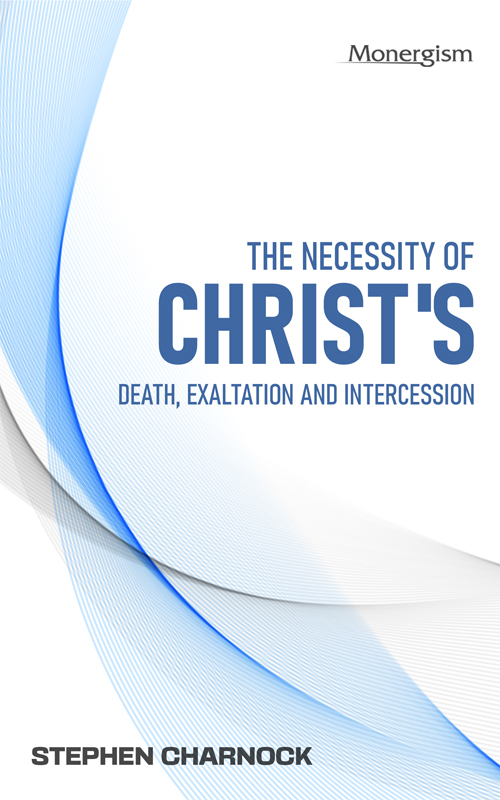 by Stephen Charnock
by Stephen Charnock
in ePub, .mobi & .pdf formats
Ought not Christ to have suffered these things, and to enter into his glory?—LUKE 24:26.
THE words are an answer of our Saviour's to the discourse of two of the disciples who were going to Emmaus, ver. 13. He came incognito to them while they were discoursing together of the great news of that time, viz., the death of their master, whom they acknowledge 'a prophet mighty in deed and word before God and all the people,' ver. 19; confirmed by God to be so by miracles, and confessed to be so by the people. Yet they questioned whether he were the Messiah that should redeem Israel, and erect the kingdom so much promised and predicted in the Scripture. They could not tell how to reconcile the ignominy of his death with the grandeur of his office, and glory of a king. And though they had heard by the women of 'a vision of angels' that assured them 'he was alive,' yet they do not seem in their discourse to give any credit to the report, but relate it as they heard it; though both by what they said before, ver. 21, that they had 'trusted that it was he that should have redeemed Israel,' and also by the sharp reproof Christ gives them, ver. 25, 'O fools, and slow of heart to believe all that the prophets have spoken!' we may conclude that they thought it a mere illusion, or a groundless imagination of the women. Christ, to rectify their minds, begins with a reproof, and follows it with an instruction, that what they thought a ground to question the truth of his office, and the reality of his being the Messiah, was rather an argument to confirm and establish it, since that person characterised in the Old Testament to be the Messiah was to wade to his glory through a sea of blood, and such sufferings in every kind as cruel and shameful as that person in whom they thought they had been deceived, had suffered three days before; and afterwards discourseth from the Scripture that his death, and such a kind of death, did well agree with the predictions of the prophets; and therefore, 'beginning at Moses and all the prophets, he expounded unto them in all the scriptures the things concerning himself.' He might well sum up in two or three hours' time (wherein we may suppose he was with them) most of those testimonies which did foretell his sufferings for the expiation of sin. The proposition which he maintains from Moses and the prophets, is in the text, 'Ought not Christ to have suffered those things?' which is laid down by way of interrogation, but equivalent to an affirmation; and he backed, without question, his discourse with many reasonings for the confirmation of it, to reduce them from the distrust they had to a full assent to the necessity of his death, in order to his own glory, and consequently theirs; the foundation of his own exaltation, and the redemption of mankind, being laid in his being a sacrifice.
-----
Table of Contents
A DISCOURSE OF THE NECESSITY OF CHRIST'S DEATH
A DISCOURSE OF THE NECESSITY OF CHRIST'S EXALTATION
A DISCOURSE OF CHRIST'S INTERCESSION
